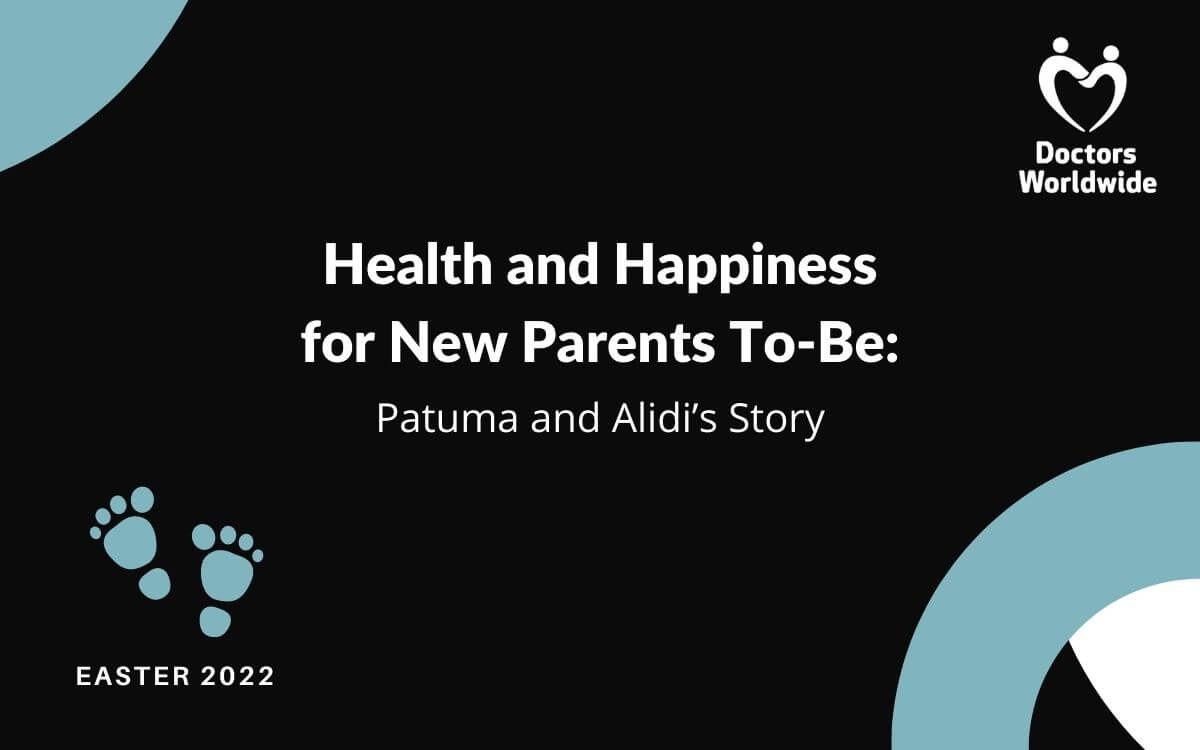Every Easter, people around the world celebrate new life, gather as a family, and eat together, marking the end of Lent and the start of fresh beginnings. At Doctors Worldwide, a focus on celebrating and supporting new beginnings is also emphasised this month, with our 2022 Malawi Maternity project aiming to serve mothers in need with quality healthcare, support safe baby delivery, and rehabilitate maternity clinics in order to improve their services for patients in need.
At Doctors Worldwide, we serve communities in need so that they can build healthier and happier futures, and with our Malawi Maternity project, we aim to serve mothers & babies in need to ensure they can look towards the future with hope, good health, and happiness. Globally, 94% of all maternal deaths occur in low and lower middle-income countries, yet most of these deaths could have been prevented (WHO). In addition, 19 newborns (per 1000 live births) will die before reaching their first month of life (UNICEF). Meanwhile, in Malawi, mothers often struggle to access adequate healthcare facilities in order to safely give birth, and their reliance on inconsistent public transport can often cause delays, complications, and even death.
Patuma and Alidi’s Story
“My labour pains started at midnight and my husband was so scared since it was our first baby. He rushed to tell my mother. She told my husband, Joseph, to put me on a bicycle, which was already on standby, and head to the hospital.”
This is the beginning of the story of Patuma and Alidi from a remote village in the rural lake district of Mangochi, Malawi. It is a story of how conditions in some areas of the world make childbirth life-threatening both for mother and child. However, it is also a story of how help and kindness from the public can save lives in a resource limited setting.
“On our way to hospital, we met some people who were coming from the beer hole. We became scared and because of my condition, we decided to face them and explained our story – that we were rushing to the hospital for delivery. The men then decided to escort us to the Health Centre. My condition became worse when it started to rain and it was cold. One of the men who joined us had a raincoat which he gave me and we had to seek shelter in the nearby village until the rain became less heavy. When the rain stopped, we continued our journey to the Health Centre. When we reached the Health Centre, I was almost ready for the delivery, the nurses were also busy helping the other women in the labour ward so there was nobody to attend to me. Just after ten minutes, labour started and I was assisted by Hospital Maids and I delivered a baby boy. Fortunately, we both survived.”
For some women, their birthing experience is not as fortunate; their story does not end with good health, happiness, and a new baby to cradle in their arms. In Malawi, there have been cases of women dying in labour on public buses in an attempt to reach a healthcare facility, whilst some pregnant women in labour walk up to 9km (minimum 3 hours) to reach their nearest clinic.
This Easter, we need your support. Access to quality healthcare is not a privilege, it is a human right, and together, we can make this a reality for the most vulnerable communities.
Donate now to our Malawi Maternity Project or why not stretch your donations further by donating to our Life Saving Fund.


